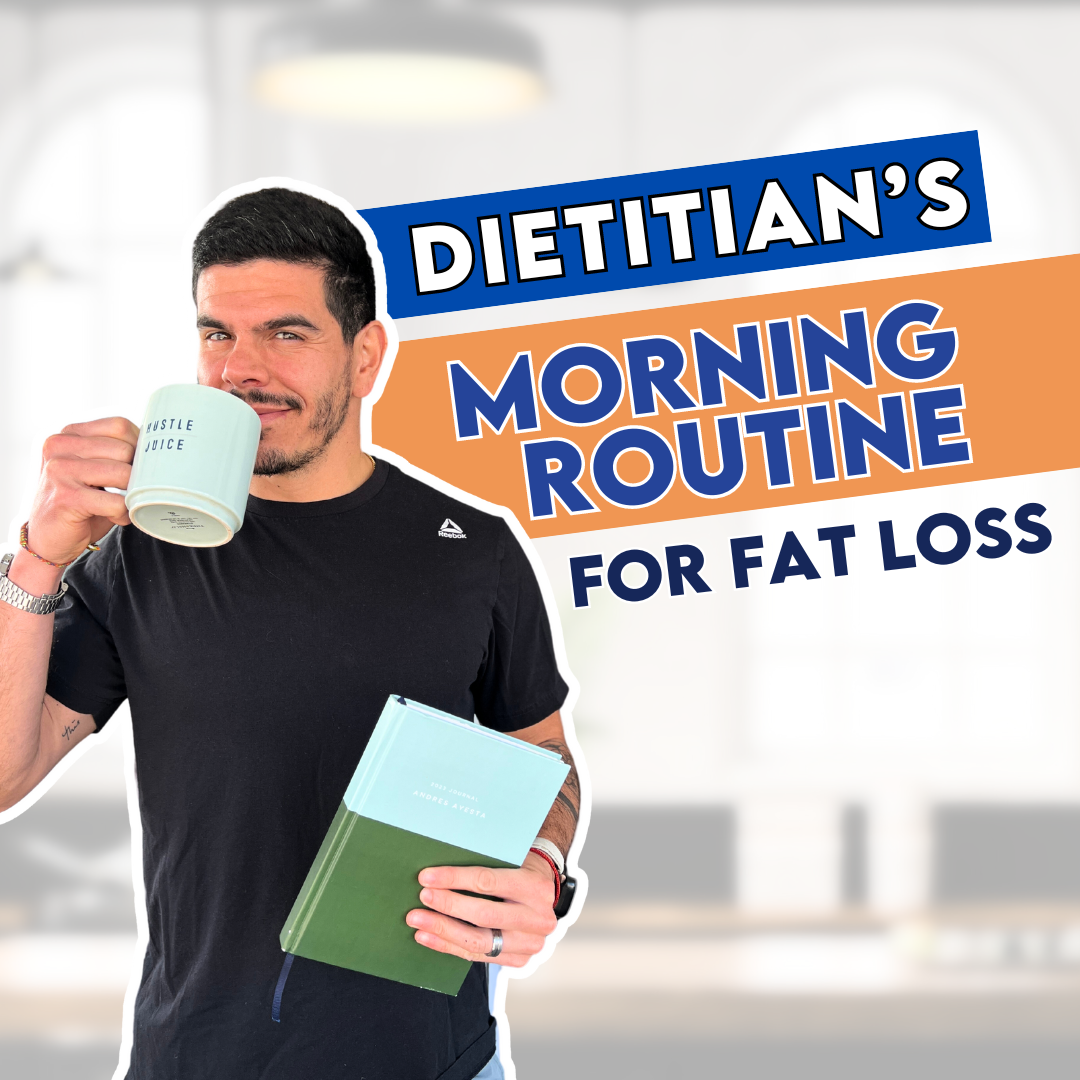Should you try intermittent fasting for weight loss? Here’s my perspective as a registered dietitian.
Is Intermittent Fasting Effective for Weight Loss?

Why do so many people say intermittent fasting is the ONE THING that helped them lose weight? Is it actually better than any other approaches to weight loss? As a registered dietitian who helps career-driven parents and busy professionals reach their weight loss goals, these are questions I get all the time. So, let’s chat about it!
To give you a quick definition, intermittent fasting is basically when you don’t eat for specific periods of time. A common approach is to follow a 16/8 schedule, where you fast for 16 hours and have an 8 hour window for eating. There are several other common fasting schedules that someone might follow, but this article is not going to get into the specifics of fasting. If you want to know more about how to practice intermittent fasting, leave a comment, and I will write another article on this topic! I practiced intermittent fasting for an entire year while completing my Master’s thesis on the topic of fasting, so this is an area where I have a lot of experience. In my coaching program, we teach some of our clients how to incorporate fasting into their lifestyle, when it fits their goals and needs.
Is Intermittent Fasting Better Than Any Other Diet?
When we look at the data, a recent research review by a prominent fasting researcher concluded that incorporating a form of intermittent fasting (regardless of the type) can help people achieve 3–8% weight loss over 8-12 weeks. For context, if you weigh 200 lbs., that is 6-16 lbs. of weight loss.
However, it’s important to note that the review also found that the degree of weight loss with intermittent fasting is similar to that achieved with traditional calorie restriction strategies — ie. just eating fewer calories, without timing windows.
Basically, this means two things:
- You can lose weight with intermittent fasting because you consume less calories (due to less time to eat food during the day).
- The amount of weight loss that happens is no different than if you just restricted your calories, without any time restrictions or fasting.
So, why do people rave about intermittent fasting and how it’s helped them lose a gazillion pounds?
Simple — intermittent fasting is a calorie management strategy. By restricting eating to a certain window, it makes it easier for some people to stay in a calorie deficit and avoid overeating.
How Fasting Causes Weight Loss
Imagine someone told you that she lost 50 lbs. doing intermittent fasting. But, before she started, her morning routine included stopping at Starbucks to get a Pumpkin Spice Latte (390 calories) and a Sausage, Egg and Cheese Wrap (640 calories).
That means, when she started fasting by skipping her breakfast, she cut over 1000 calories from her usual intake. So of course she lost weight! Essentially, skipping a meal causes people to reduce their overall calories, while feeling more full and satisfied during their eating window than they would if their meals were more spread out.
Who Should NOT Try Intermittent Fasting for Weight Loss
Intermittent fasting might be a helpful strategy for some people, but it’s not for everyone. So, if you’re reading this and wondering whether you should give it a try, let’s talk about who it’s NOT for.
First, I would not recommend fasting if you find you are extremely hungry, irritable, or have low energy when you don’t eat for a long period of time. Why be miserable?
Second, I would not recommend continuing to fast if you try it and find yourself significantly overeating during your eating window. If you restrict your calories, only to overdo it when you are “allowed” to eat, it defeats the purpose of fasting. For those who say that intermittent fasting did not help them lose weight, this tends to be the reason.
Third — very important — I would not recommend this for anyone who has a history of eating disorders or disordered eating. Any nutrition approach that encourages restriction can trigger a disordered pattern in people with this history. So, if fasting becomes distressing or obsessive, it’s not for you.
Finally, pregnant or lactating women should refrain from doing any type of fasting.
Who Might Consider Trying Intermittent Fasting
If you don’t fall into any of the previous categories, intermittent fasting might be something you could consider experimenting with. The people who find it effective are those who feel that it fits easily into their lifestyle, rather than it being something they are forcing themselves to do using extreme willpower. In our coaching programs, we refer to fasting as an “advanced strategy for calorie management” and it can be implemented safely when it’s done properly.
Key Takeaways
Intermittent fasting is a tool, not a magical solution. It may help you to sustain a calorie deficit, but it’s not the best approach for everyone. If being restrictive with when you eat your meals isn’t something you enjoy and it doesn’t come easily, it is absolutely not necessary to reach your weight loss goals. Furthermore, there are many researched benefits of fasting beyond weight loss. Since this article focuses on weight loss, I’ve chosen to leave out the other benefits, but if you want to know more about the effects of fasting on blood sugar management, blood lipids, and longevity, leave a comment and I can write another article on this topic.
TO CONNECT WITH ME
Instagram: www.instagram.com/andresayesta
TikTok: https://vm.tiktok.com/tLLoyS/
Youtube www.youtube.com/c/andresayesta
Podcast IG page: www.instagram.com/planos_nutrition
Facebook: https://www.facebook.com/planosnutrition
FREE RESOURCES
Macro Counting Guide https://www.planosnutrition.co/free-macro-guide
Macro-Friendly Meal Planning Guide https://www.planosnutrition.co/freemealplanguide
TO JOIN OUR PRIVATE FACEBOOK COMMUNITY
Not Another Diet Community: https://www.facebook.com/groups/notanotherdietcommunity
FOR NUTRITION COACHING
Apply here at https://planosnutrition.com
explore more
explore more


